




Did you know that your pillows can harbor dirt, dust, and bacteria? That’s right – even though you might not think about it, pillows collect dead skin cells, oils, and sweat over time. So, how often should you wash your pillows to keep them clean and fresh?
According to experts, it is recommended to wash your pillows every six months to a year, depending on the type of pillow and your personal preferences. However, some pillows, such as memory foam or down pillows, may require more frequent cleaning. It is essential to follow the care instructions provided by the manufacturer to ensure you clean your pillows properly.
Regularly washing your pillows can help eliminate allergens, odors, and even extend their lifespan. If you or your family members suffer from allergies, it’s crucial to clean your pillows more often. Additionally, using pillow protectors and changing pillowcases regularly can further improve the cleanliness and hygiene of your pillows.
Remember, a clean pillow not only ensures a good night’s sleep but also contributes to your overall well-being. So, don’t forget to include pillow washing in your regular cleaning routine!
How Often to Wash Pillows?
Keeping your pillows clean is essential for a good night’s sleep and maintaining good hygiene. While it’s easy to remember to wash your pillowcases regularly, many people overlook the importance of washing their pillows themselves. So, how often should you wash your pillows? Here are some expert tips and recommendations:
1. Follow the manufacturer’s instructions
Before washing your pillows, check the manufacturer’s instructions for any specific guidelines. Some pillows may have specific cleaning instructions based on their materials or construction.
2. Regularly wash your pillows
As a general rule, it is recommended to wash your pillows every six months to one year. However, it is important to note that this can vary depending on factors such as personal preferences, allergies, and the pillow’s usage.
3. Consider the pillow type

The washing frequency may also depend on the type of pillow you have:
- Down and feather pillows: These types of pillows require proper care and maintenance. It is recommended to wash them every six months to remove dust, allergens, and oils.
- Synthetic pillows: These pillows can usually be machine-washed and will typically have a longer lifespan compared to down or feather pillows. Washing them every six months is a good guideline.
- Memory foam pillows: These pillows are not machine-washable and require spot-cleaning only. Regularly vacuuming the surface and using a pillow protector can help maintain their cleanliness.
4. Consider lifestyle factors
People with allergies or respiratory problems may need to wash their pillows more frequently. Additionally, if you frequently sweat at night or if you have pets that sleep on your pillows, it may be a good idea to wash them more often.
5. Use the proper washing method
When washing your pillows, it is important to use the proper method to ensure they are thoroughly cleaned. Follow these general steps:
- Remove the pillowcase and any other protective covers.
- Check for any stains or spots and treat them with a stain remover.
- Place the pillows in the washing machine with a gentle detergent.
- Run a gentle cycle with cold water.
- After washing, make sure to properly dry the pillows to prevent mold and mildew. Use a low heat setting in the dryer or air-dry them outdoors.
By following these tips and recommendations, you can ensure that your pillows stay clean, fresh, and free from allergens, providing you with a more comfortable and healthier sleep environment.
Expert Tips and Recommendations
1. Frequency
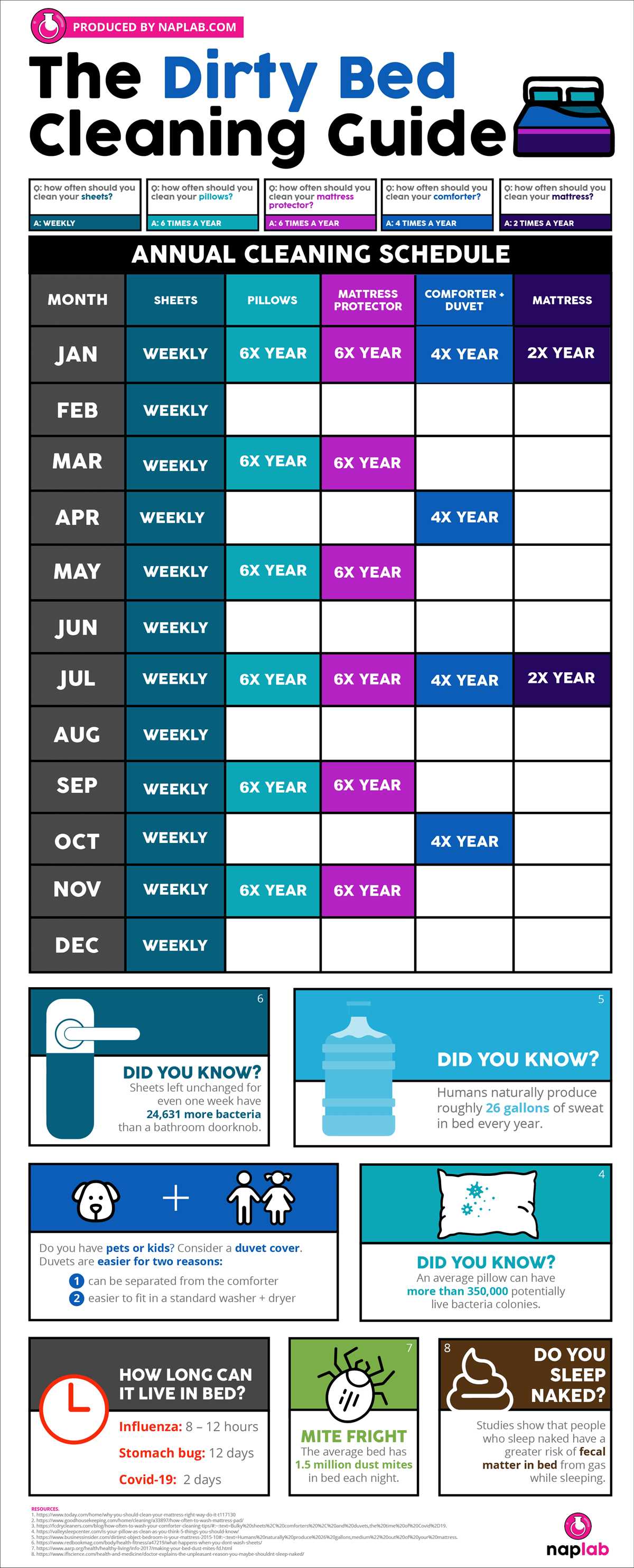
It is recommended to wash your pillows at least every six months to keep them clean and fresh. However, if you suffer from allergies or asthma, it is advisable to wash them more frequently, about every three months, to reduce the accumulation of allergens.
2. Pillow Covers
Using pillow covers can help protect your pillows from sweat, oils, and dirt, extending their lifespan and reducing the need for frequent washing. It is recommended to use zippered pillow covers made of hypoallergenic materials. These covers can be washed along with your regular bedding.
3. Washing Instructions
Before washing your pillows, check the care label for specific instructions. Most pillows can be machine washed on a gentle cycle using warm water and mild detergent. It is recommended to wash two pillows at a time to help balance the load and ensure a thorough cleaning.
4. Drying
Air drying is the best option for drying pillows as it helps maintain their shape and prevents them from clumping. However, if you prefer using a dryer, choose the low heat setting and add a few tennis balls or dryer balls to help fluff the pillows. Ensure that the pillows are completely dry before using them again.
5. Feather and Down Pillows
If you have feather or down pillows, it is important to follow the care instructions carefully as these pillows require special care. Most feather and down pillows can be machine washed, but they may take longer to dry. It is recommended to fluff them regularly during the drying process to prevent clumping.
6. Pillow Replacement
No matter how well you care for your pillows, they will eventually lose their shape and become less supportive. It is generally recommended to replace pillows every 1-2 years, depending on their quality and usage. If your pillows have noticeable stains, odors, or have lost their shape, it is time to replace them.
7. Allergen Reduction

To further reduce allergens in your pillows, you can consider using anti-allergen pillow protectors, regularly vacuuming your bedroom, and washing your bedding in hot water to kill dust mites and remove allergens. Additionally, it is recommended to keep pets out of the bedroom and avoid smoking indoors.
8. Professional Cleaning
If your pillows are non-washable or require special care, it is advisable to have them professionally cleaned. Professional cleaners can use specialized techniques and equipment to effectively clean and sanitize your pillows, ensuring they are free of allergens and bacteria.
By following these expert tips and recommendations, you can ensure that your pillows stay clean, fresh, and comfortable for a longer period of time.
Why It’s Important to Wash Pillows Regularly
Your pillows may seem like comfortable and innocent accessories on your bed, but they can actually be breeding grounds for bacteria, allergens, and dust mites. Regularly washing your pillows is important for several reasons:
- Hygiene: Over time, your pillows can accumulate sweat, oil, dead skin cells, and other bodily fluids. These substances provide a fertile environment for bacteria to thrive. Washing your pillows regularly helps maintain a clean and hygienic sleeping environment.
- Allergen Control: Dust mites are microscopic creatures that feed on dead skin cells. They tend to accumulate in pillows, leading to allergies and asthma symptoms. Washing your pillows can help remove dust mites and their allergens, providing relief for allergy sufferers.
- Odor Prevention: Sweat, body oils, and dirt can cause pillows to develop unpleasant odors over time. By washing your pillows regularly, you can prevent these odors from building up and enjoy a fresh-smelling bed.
It is recommended to wash your pillows every three to six months, or more frequently if necessary. However, it’s important to check the care instructions provided by the manufacturer, as some pillows may have specific washing requirements.
When washing your pillows, consider the following:
- Always use a mild detergent and avoid using bleach, as it can damage the pillow.
- Check if your pillows are machine washable or if they need to be hand-washed.
- Use a gentle cycle and warm water for machine-washable pillows.
- Dry your pillows thoroughly, making sure they are completely dry before using them again. Moist pillows can develop mold and mildew.
- Consider adding a protective pillow cover or pillowcase to prolong the life of your pillows and provide an extra layer of defense against allergens and dust mites.
By regularly washing your pillows and following proper care instructions, you can ensure a clean, hygienic, and comfortable sleeping environment.
The Benefits of Regular Pillow Washing
Regularly washing your pillows can have several benefits for your health, comfort, and overall wellbeing. Here are some of the key reasons why it’s important to wash your pillows on a regular basis:
1. Cleanliness
Washing your pillows helps to remove dirt, sweat, oils, and dead skin cells that can accumulate over time. This not only helps to keep your pillows smelling fresh and clean, but it also improves the overall cleanliness of your bedding.
2. Allergen Reduction
Pillows can harbor allergens such as dust mites, pet dander, and pollen. Washing your pillows regularly can help to reduce these allergens and provide relief for those who suffer from allergies or asthma. By removing these allergens, you can enjoy a cleaner and healthier sleeping environment.
3. Extended Lifespan
Regularly washing your pillows can help to extend their lifespan. Over time, pillows can become compressed and lose their shape. Washing and fluffing your pillows can help to maintain their integrity and provide better support for your head and neck while you sleep. This can ultimately prolong the life of your pillows and save you money in the long run.
4. Improved Sleep Quality
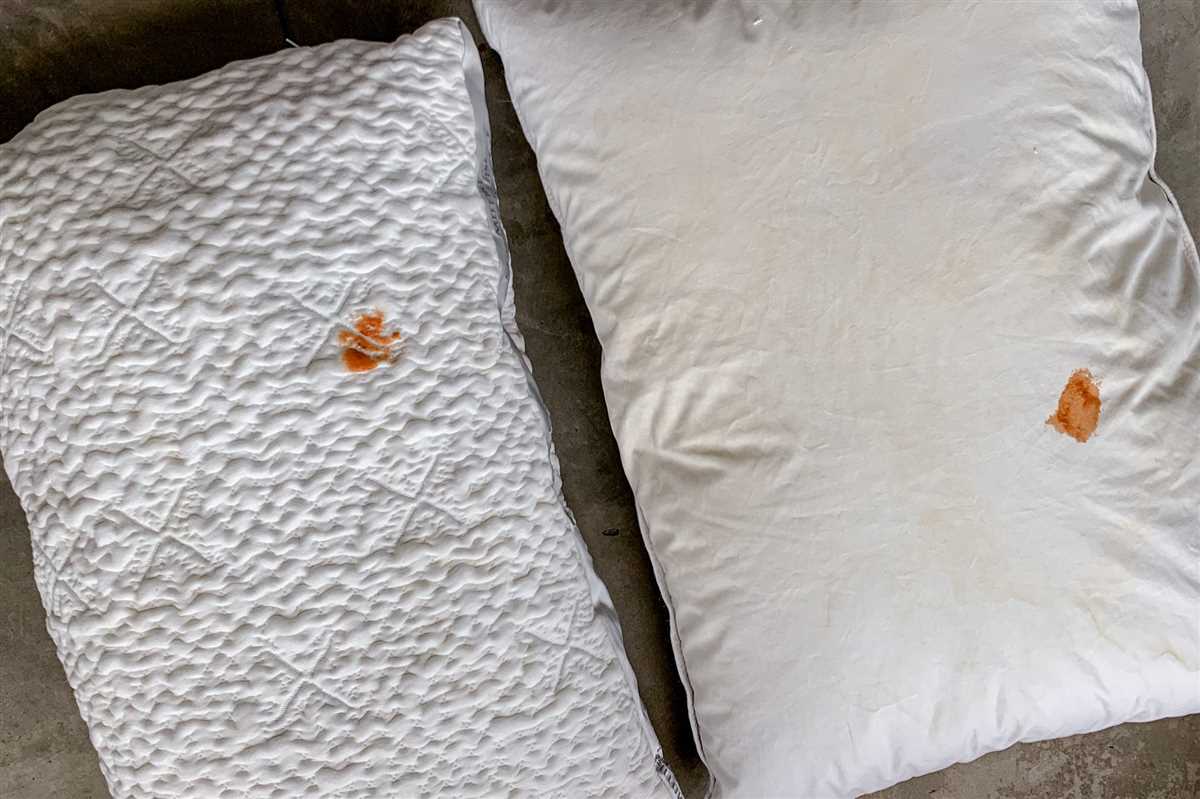
Sleeping on a clean and fresh pillow can significantly improve the quality of your sleep. By removing dirt, sweat, and allergens, you can create a more comfortable and hygienic sleep environment. This can lead to better sleep quality, reduced tossing and turning, and waking up feeling more refreshed and rejuvenated.
5. Odor Prevention
Regularly washing your pillows helps to prevent unpleasant odors from developing. By removing sweat, oils, and other residues, you can keep your pillows smelling fresh and clean. This can make your sleeping environment more inviting and enjoyable.
In summary, washing your pillows regularly offers numerous benefits, including improved cleanliness, allergen reduction, extended lifespan, improved sleep quality, and odor prevention. By making pillow washing a part of your regular cleaning routine, you can enjoy a cleaner and healthier sleep experience.
Factors to Consider When Determining Pillow Washing Frequency
When determining how often to wash your pillows, it’s important to take into account several factors, including:
-
Personal Preference: Some individuals may prefer to wash their pillows more frequently for a fresh and clean sleeping environment.
-
Allergies and Asthma: If you suffer from allergies or asthma, it’s recommended to wash your pillows more often to remove allergens and dust mites.
-
Sweat and Body Oil: If you tend to sweat a lot or have oily skin, it’s essential to wash your pillows regularly to prevent the buildup of sweat and body oil, which can lead to unpleasant odors and bacteria growth.
-
Pillow Material: The material of your pillow can also affect how often it should be washed. Synthetic pillows can typically be washed more frequently than down or memory foam pillows.
-
Pillow Covers: Using pillow covers or protectors can help extend the time between washes by providing an additional layer of protection against stains, dirt, and sweat.
-
Bedding Routine: If you regularly wash your sheets and pillowcases, you may be able to wash your pillows less frequently as they receive some level of cleaning during the laundering process.
It’s important to note that these factors can vary for each individual, and the recommended washing frequency may differ depending on personal circumstances. It is generally recommended to wash pillows every 6-12 months, but adjusting this timeframe according to the factors mentioned above can help ensure a fresh and hygienic sleeping environment.
The Role of Pillow Material and Usage
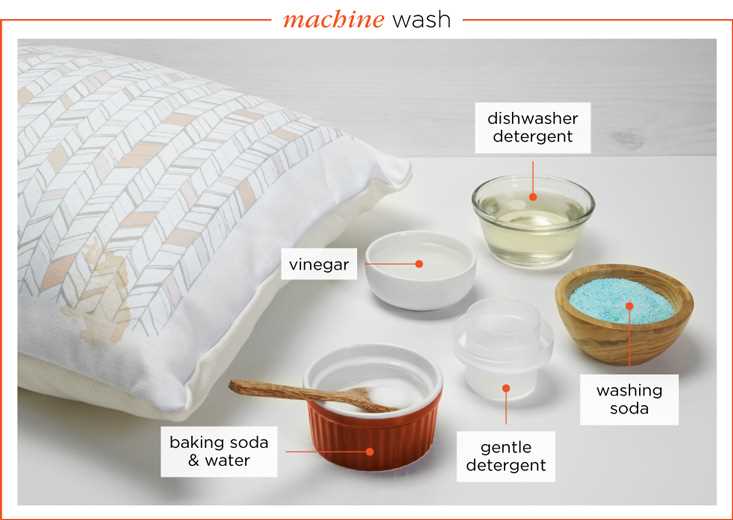
Pillows are made from a variety of materials, each with its own unique properties that affect their maintenance and cleaning requirements. Understanding the role of pillow material and usage is essential in determining how often you should wash your pillows.
Pillow Materials
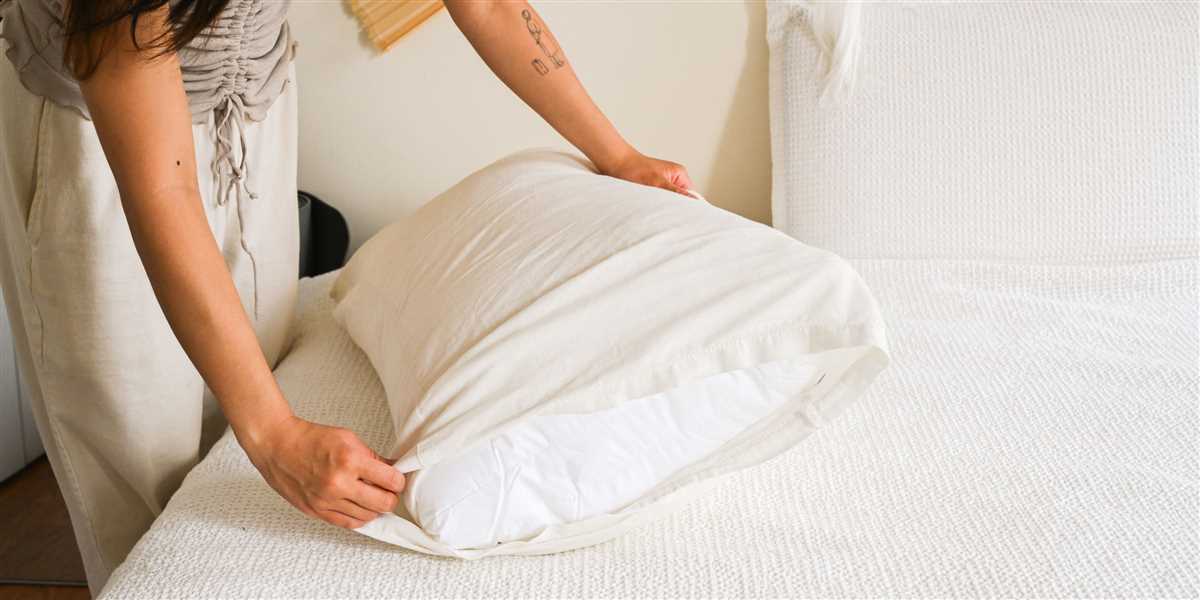
The most common pillow materials include:
- Cotton: Cotton pillows are soft, breathable, and easy to clean. They are hypoallergenic and suitable for individuals with allergies.
- Polyester: Polyester pillows are durable, affordable, and resistant to dust mites. However, they may not be as breathable as cotton pillows.
- Memory Foam: Memory foam pillows contour to the shape of your head and provide excellent support. They are hypoallergenic, but often require special care to clean.
- Down and Feather: Down and feather pillows are luxurious and offer superior softness. However, they require more maintenance and may not be suitable for individuals with allergies.
Pillow Usage
The frequency of washing your pillows also depends on how you use them. Here are some factors to consider:
- Sleeping Habits: If you sweat heavily or drool during sleep, you may need to wash your pillows more often.
- Allergies: Individuals with allergies should wash their pillows regularly to remove allergens, such as dust mites, pollen, and pet dander.
- Mattress Protection: Using pillow protectors or pillowcases can help extend the lifespan of your pillows and reduce the need for frequent washing.
Recommended Washing Frequency
While pillow materials and usage play a significant role in determining how often you should wash your pillows, experts generally recommend washing pillows every 3-6 months.
To maintain cleanliness and prolong the lifespan of your pillows, it is important to follow the manufacturer’s care instructions and regularly inspect them for signs of wear and tear.
Guidelines for Washing Different Types of Pillows
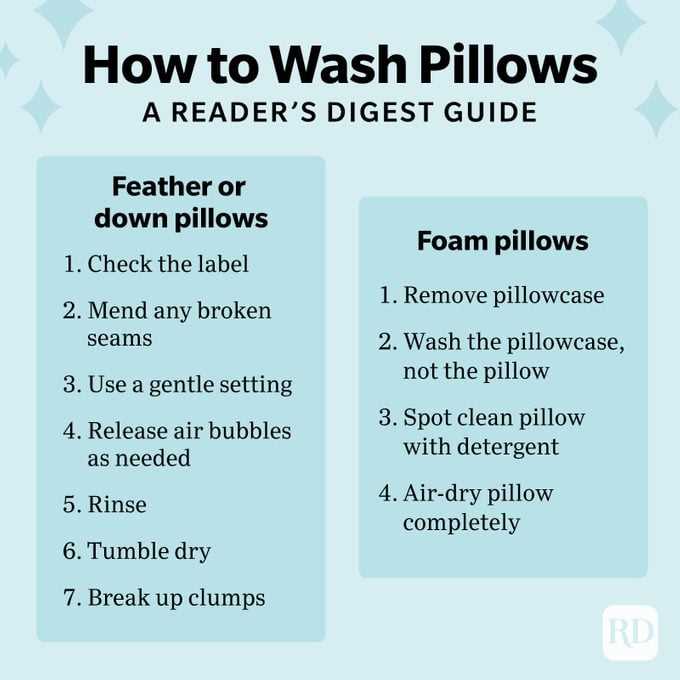
1. Polyester or Synthetic Pillows:
These pillows are usually machine washable and can be washed every 2 to 4 months.
- Check the care label on the pillow for specific instructions.
- Place two pillows in the washing machine to balance the load.
- Use a gentle cycle and warm water.
- Use a mild detergent and avoid using bleach or fabric softener.
- Run an extra rinse cycle to ensure all detergent is removed.
- Tumble dry on low heat with dryer balls or clean tennis balls to fluff the pillows.
2. Down or Feather Pillows:
These pillows require more delicate care and should be washed every 6 to 12 months.
- Check the care label to see if the pillow is machine washable or if it requires dry cleaning.
- If machine washable, place one pillow in the washing machine to prevent imbalance.
- Use a gentle cycle and cold or lukewarm water.
- Use a mild detergent specifically designed for down or feathers.
- Run an extra rinse cycle to ensure all detergent is removed.
- Dry the pillows on low heat with clean tennis balls to fluff them.
3. Memory Foam Pillows:
Memory foam pillows should be spot cleaned and not submerged in water.
- Remove any covers or pillowcases from the memory foam pillow.
- Spot clean any stains or spills using a mild detergent and a damp cloth.
- Air dry the pillow completely before putting the covers or pillowcases back on.
- To keep the pillow fresh, sprinkle baking soda on the memory foam and let it sit for a few hours before vacuuming it off.
4. Bamboo or Cotton Pillows:
These pillows are usually machine washable and should be washed every 2 to 4 months.
- Check the care label on the pillow for specific instructions.
- Place two pillows in the washing machine to balance the load.
- Use a gentle cycle and warm water.
- Use a mild detergent and avoid using bleach or fabric softener.
- Run an extra rinse cycle to ensure all detergent is removed.
- Tumble dry on low heat or air dry the pillows.
| Pillow Type | Washing Frequency |
|---|---|
| Polyester or Synthetic | Every 2 to 4 months |
| Down or Feather | Every 6 to 12 months |
| Memory Foam | Spot clean only |
| Bamboo or Cotton | Every 2 to 4 months |
FAQ
How often should I wash my pillows?
Experts recommend washing your pillows every 3 to 6 months. However, it ultimately depends on your personal preference and lifestyle.
What are the benefits of washing pillows regularly?
Regularly washing your pillows helps remove dirt, dust, sweat, and allergens. It can also help maintain the shape and fluffiness of your pillows.
Can I wash my pillows in the washing machine?
Yes, most pillows can be washed in a washing machine. However, it’s important to check the care label on your pillow for specific instructions.
How do I properly wash my pillows?
To properly wash your pillows, remove the pillowcase and pillow protector (if applicable) and place them in the washing machine. Use a mild detergent and select a gentle or delicate cycle. It’s recommended to wash two pillows at a time to balance the load. After washing, thoroughly dry the pillows, preferably in a dryer on low heat with a few tennis balls or dryer balls to help fluff them up.
What if my pillows are not machine washable?
If your pillows are not machine washable, you can still clean them by spot cleaning any stains and odours. Additionally, you can air out your pillows by placing them in a well-ventilated area or in the sun. Regularly fluffing and rotating your pillows can also help keep them fresh.
How often should I wash my pillows?
Experts recommend washing your pillows every 6-12 months to keep them clean and fresh.










